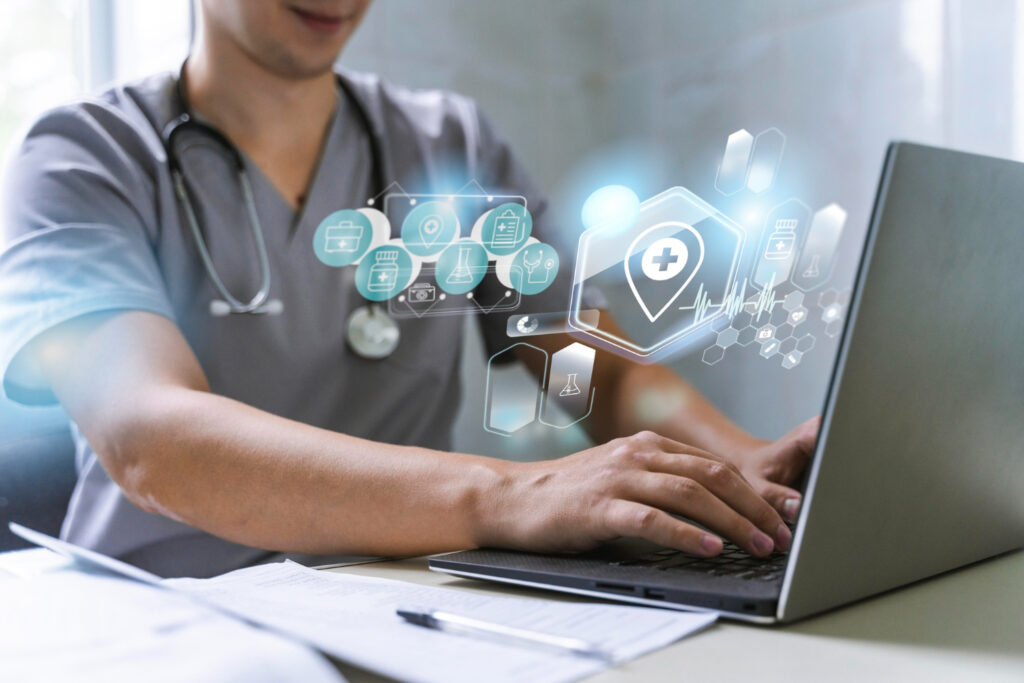
The healthcare industry is ever-changing, and staying abreast of industry trends, practices, regulations, and technologies is essential to success. In line with these learning demands, numerous organizations are adopting learning management systems (LMS) to address these needs. These digital platforms provide a systematic process of training that guarantees that doctors have the required skills and knowledge to give quality care.
Simplified Method To Train
With a learning management system for healthcare, healthcare facilities can centralize their training resources for easy management of educational programs. Rather than using multiple platforms and materials, everything can be accessed in one location. This streamlining can eliminate the previously time-consuming process of coordinating, organizing, and distributing training materials.
Organized content is beneficial for healthcare workers studying the same material. Access to resources through one portal allows individuals to spend less time navigating their systems and more time receiving the information they need.
Custom Learning Paths
An LMS is flexible enough to enable custom training pathways. Every healthcare worker can proceed at his or her speed, meeting the demands of individual style and requirement. Such an approach ensures better engagement while boosting knowledge retention levels.
In addition, personalized assessments with feedback can pinpoint exactly where a student may need extra attention. This focused training ensures that medical staff are sufficiently prepared for their jobs.
Regular Updates And Compliance
In the healthcare industry, it is vital to stay updated with the existing standards and regulations. A learning management system is a great way to provide updated training material based on recent instructions. Courses can also be updated quickly as more information surfaces, keeping the entire team up to date with the latest and most accurate information.
Compliance training is another key piece of it. LMS tracks completed courses, which helps organizations ensure that staff complies with necessary regulatory requirements with ease. This functionality makes audits easier and minimizes the risk of fines for compliance violations.
Better Accessibility And Flexibility
Many health professionals work odd hours, which makes training during regular hours difficult. Learning can be done while on the move from anywhere, a feature enabled through an LMS. Online access allows education to be incorporated around busy work schedules, taking away the pressure of having to balance training with other responsibilities.
If the digital platform is easily accessible, which helps remote learning, it means that staff at various locations can receive uniform learning too. This consistency means that no matter where team members find themselves or what time zone they are working in, they will all have access to the same materials, which are consistently of high caliber.
Quick Monitoring And Reporting
An effective LMS offers tools to track progress and performance. The admin can track the completion rate and analyze results and trends. This education-oriented systemic data approach enables evidence-based decision making and strategic planning, and it is evidenced in many of the higher-performing education systems globally.
Reporting in detail is a good feature that enables the organization to evaluate the training efficiency. This feedback loop enables healthcare facilities to incrementally refine their educational sessions based on what works and what does not.
Cost-Effective Solution
An LMS can save more money than you think. Training by traditional means usually needs venues, printing resources, and a fee for trainers. Conversely, digital platforms eliminate these costs by providing content over the Internet.
In addition, you can re-use and update existing materials for no extra cost, which saves you a lot of money in the long run. A learning management system (LMS) is an investment that delivers continual value.
Culture Of Continuous Improvement
This means maintaining a mindset of continual learning, which helps foster a culture of excellence within healthcare organizations. A learning management system also encourages ongoing learning and development, nudging personnel to be more proactive in progressing their capabilities and competence.
Healthcare facilities show a commitment to professional development by prioritizing education. This care serves the individual staff and will enhance patient care outcomes.
Conclusion
A learning management system in healthcare has a lot to offer. More efficient and effective training is made possible through simplified procedures, individualized learning, automatic updates, and improved accessibility. Together, they facilitate regulatory compliance, monetary savings, and continual enhancement, which can make an LMS an important instrument for healthcare organizations. With the rapid transformation taking place in the industry, moving towards digital education solutions ensures that professionals are ready to cater to the demands of their jobs.

